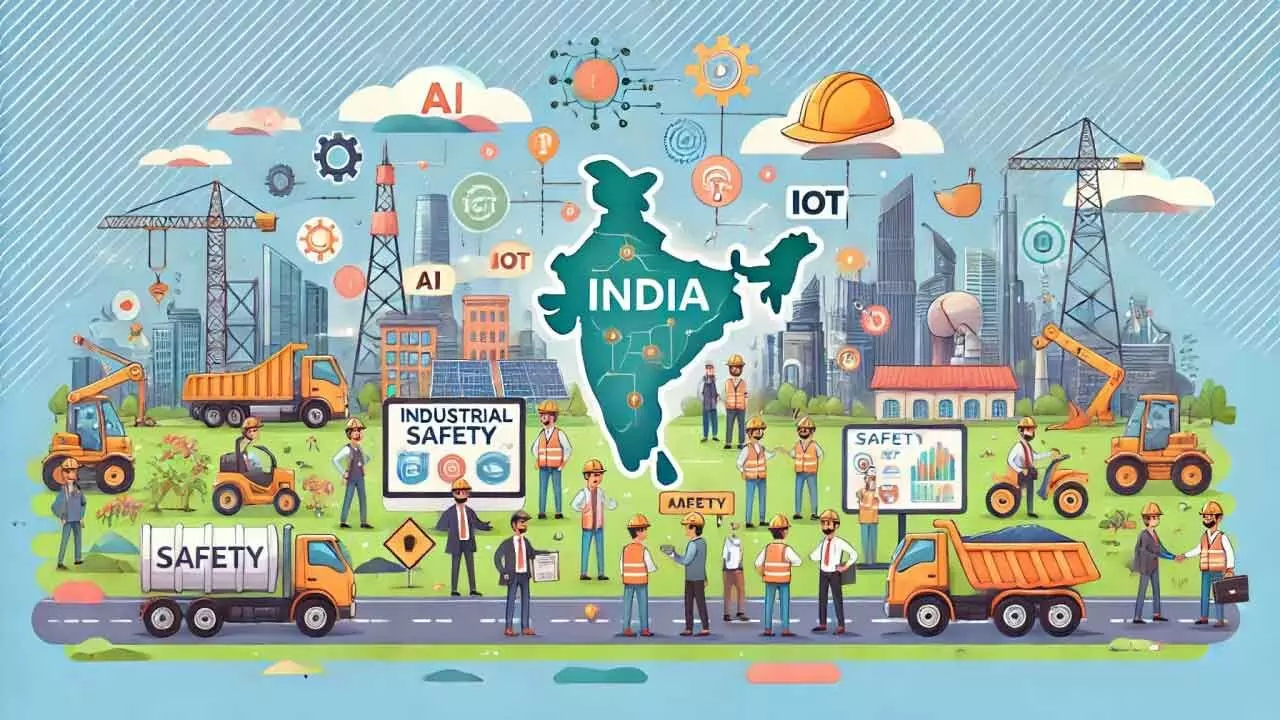South India’s Industrial Growth Spurs Demand For Robust Safety Practices
The systematic Process Hazard Analysis (PHA) helps identify, evaluate and control potential hazards in industrial processes
South India’s Industrial Growth Spurs Demand For Robust Safety Practices

Everything today is business and these days business focuses not just on revenues and profits, but also includes credibility and reputation. One of the most fundamental aspects of reputation is safety. Deriving a competitive edge has never been this easy
South India has emerged as a powerhouse of industrial activity, with Tamil Nadu, Karnataka, Telangana and Andhra Pradesh witnessing a steady rise in manufacturing hubs, pharmaceutical clusters, chemical parks, and oil and gas operations. This growth, while propelling economic development, also brings with it the critical need for robust safety systems to prevent industrial accidents and ensure long-term operational sustainability.
As companies scale and diversify their operations, there is an increasing focus on building resilient safety infrastructures aligned with global best practices. From multinational giants to domestic manufacturing leaders, there is a conscious move towards adopting proactive risk assessment frameworks, integrating hazard analysis, and ensuring compliance with international safety regulations.
One such key area gaining momentum is Process Hazard Analysis (PHA)—a systematic approach used to identify, evaluate, and control potential hazards in industrial processes. Alongside, DSEAR/ATEX compliance (focused on managing explosive atmospheres and flammable substances) and laboratory testing for chemical reactivity and thermal stability are becoming essential services sought by industrial facilities in the region.
Recognizing this demand, companies like Sigma, a leading industrial safety and testing solutions provider, are deepening their engagement with businesses in south India. With their specialized offerings in process safety, Sigma is helping industries across pharmaceuticals, specialty chemicals, and energy sectors adopt world-class safety protocols.
Talking to Bizz Buzz, Naresh Kumar, Director, Sigma HSE India, says, “South India’s industrial evolution is impressive, but with complex processes and hazardous materials in use, there is a growing need to embed safety into the DNA of every operation.”
Sigma works closely with companies towards implementing the comprehensive Process Hazard Analysis (PHA), ensure DSEAR/ATEX compliance, and conduct advanced laboratory tests to understand chemical behaviours. These efforts not only reduce risk but also boost productivity and regulatory confidence, he said.
Raghunandan Saraf, founder and CEO, Saraf Furniture, says, “Like many other industries, I, too, have been a part of south India’s economic evolution during the past decade. We now have clusters of manufacturing industries, technological parks, logistics centres, and even new renewable energy initiatives actively sprouting in Tamil Nadu, Karnataka, Telangana, and Andhra Pradesh.”
This development has indeed catalysed the country’s growth. But industrial growth brings along the foremost South Indian challenge of incorporating safety measures parallel to industrial expansion”.
Everything today is business and these days business focuses not just on revenues and profits, but also includes credibility and reputation. One of the most fundamental aspects of reputation is safety. Deriving a competitive edge has never been this easy. With rapid advancement in automation and technology, there remains one invaluable resource that cannot be replaced: people. This leads to another set of responsibilities on us, as founders and captains of the industry, to develop evolved operational processes that incorporate safety systems as a primary feature, he added.
The region has seen several safety incidents in recent years —ranging from chemical leaks to fire hazards—that have underscored the importance of risk mitigation planning. Regulatory bodies and industry leaders alike are pushing for a preventive safety culture, where risks are identified and managed before incidents occur.
What’s noteworthy is the growing awareness among south Indian industries about DSEAR/ATEX directives, especially as companies look to expand exports to Europe and other regulated markets. These directives mandate companies to identify and control explosive atmospheres—an area where Sigma’s consultancy services are in high demand.
In the pharmaceutical belt of Hyderabad, the petrochemical clusters in Chennai, and the industrial parks in Bengaluru and Coimbatore, Sigma’s services are contributing to building safer, smarter work environments. Their clients range from bulk drug manufacturers to specialty chemical exporters and battery component suppliers—sectors where even minor lapses in safety can lead to catastrophic consequences.
Beyond compliance, Sigma’s approach includes knowledge transfer and capability building, empowering client teams through training programs, safety culture workshops, and onsite assessments. The goal is not just to fix gaps, but to instil a mindset where safety is continuously reviewed and improved upon.
As the southern region continues to attract new investments—especially in high-growth areas like green energy, electronics, and chemicals—companies like Sigma and industry leaders like Saraf Furniture, will play a crucial role in shaping the safety frameworks that govern this next phase of industrialisation.

